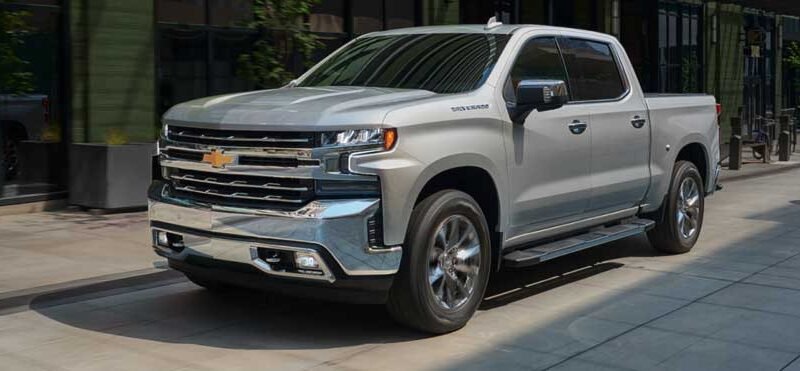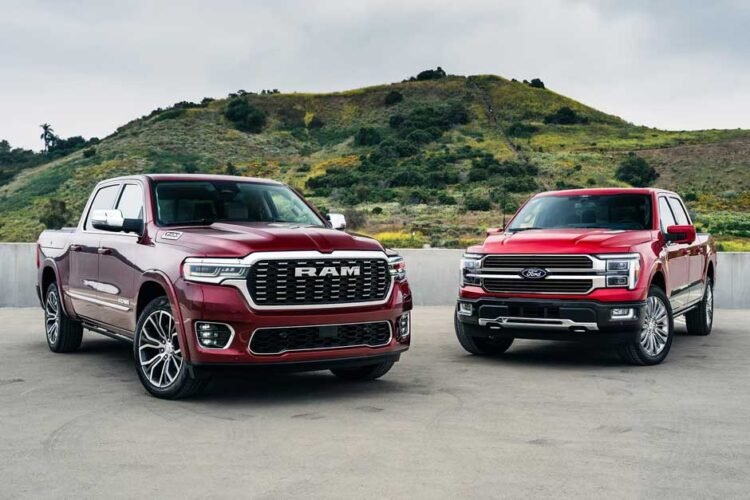The Chevy Silverado is one of America’s most trusted and versatile full-size pickup trucks, known for its durability, power, and range of configurations. One of the most important decisions when buying a Silverado is choosing between a gas or diesel engine. Each option has distinct advantages depending on your driving needs, workload, and long-term goals. If you’re exploring a Chevy Silverado for sale in Plattsburgh, NY, understanding the differences between gas and diesel engines can help you select the right model with confidence.
Performance and Power Delivery
Performance is often a deciding factor when comparing gas and diesel engines in the Silverado. Gasoline engines typically produce more horsepower, giving you quicker acceleration and more responsive handling—great for highway merging and everyday driving.
Diesel engines, on the other hand, excel at delivering torque, especially at low RPMs. This makes them ideal for towing heavy loads and handling off-road conditions. For example, the available 3.0L Duramax® Turbo-Diesel engine produces 460 lb-ft of torque, making it one of the top choices for work-related tasks and long hauls.
If you need a truck primarily for towing or hauling, diesel is the more efficient workhorse. But if your needs lean more toward daily commuting with occasional load capacity, a gas engine might feel more agile and suitable.
Fuel Efficiency
Fuel efficiency is one of diesel’s strongest advantages. Diesel engines burn fuel more slowly and provide more miles per gallon, particularly during highway driving or long-distance hauls. The Silverado 1500 with the Duramax diesel can achieve up to 29 MPG on the highway—impressive for a full-size pickup.
Gas engines, although less efficient, still offer respectable mileage. The 5.3L EcoTec3 V8, for instance, delivers decent fuel economy for urban and mixed-use scenarios. However, if fuel savings over time are a priority, diesel engines usually provide better long-term efficiency.
Towing and Hauling Capability
The Chevy Silverado is often used for towing trailers, boats, or equipment, and the engine choice plays a key role in these capabilities. Diesel engines, with their high torque output, are superior for towing. The 3.0L Duramax diesel engine allows for up to 13,300 pounds of towing capacity, depending on configuration.
Gas-powered Silverado models like the 6.2L V8 also offer strong towing capability—up to 13,300 pounds—but they may need to work harder to reach the same output. If you plan to tow frequently or haul heavy payloads, diesel offers better performance with less strain on the engine.
Engine Longevity and Durability
Diesel engines are known for their rugged construction and long lifespan. Built to withstand higher compression and heavy-duty operation, diesel engines often last longer than their gasoline counterparts when properly maintained. It’s not uncommon for diesel Silverados to reach 300,000 miles or more.
Gas engines, while slightly less durable under heavy-duty conditions, still offer excellent reliability—especially with Chevy’s reputation for strong V8 construction. For everyday drivers who aren’t consistently towing or hauling, gas engines provide more than enough longevity for most ownership timelines.
Maintenance and Repair Costs
Maintenance is where things can shift depending on your driving habits and how you care for the vehicle. Diesel engines generally require more expensive oil changes, diesel exhaust fluid (DEF) refills, and specialized maintenance due to their complex systems. Parts and labor for diesel repairs also tend to cost more.
Gas engines are more straightforward, with less expensive routine maintenance and more readily available parts. If you prefer lower service bills and simpler upkeep, a gas Silverado may be more budget-friendly.
However, the longer intervals between services in diesel engines can offset some of the higher individual costs, particularly for drivers who log a lot of miles annually.
Initial Purchase Price
Cost plays a significant role in any vehicle purchase, and diesel Silverado models usually come with a higher sticker price. This price increase reflects the enhanced towing capacity, better fuel efficiency, and longer engine life.
If you’re budget-conscious and don’t need extreme torque or efficiency, a gas-powered Silverado offers a more affordable entry point. For those planning to keep the truck long term or use it extensively for heavy-duty tasks, the upfront diesel cost may be a worthwhile investment.
Driving Experience and Noise
One area where gas engines shine is overall smoothness and sound. Gasoline-powered Silverados are typically quieter and deliver smoother acceleration. For drivers who prioritize comfort or use their trucks for family outings and daily driving, this can be a big plus.
Diesel engines, although more refined than in the past, still produce more engine noise and vibration—especially at idle or under heavy loads. For some, the diesel “rumble” is a sign of power; for others, it’s a potential distraction.
Cold Weather Performance
In colder climates like Plattsburgh, NY, engine performance in winter is especially important. Gas engines warm up faster and are generally more forgiving in freezing temperatures, making cold starts easier and quicker.
Diesel engines can be harder to start in extreme cold and may require glow plugs or engine block heaters. If your Silverado will be parked outside overnight in sub-zero temperatures, a gas engine may offer more convenience during winter months.
Emissions and Environmental Impact
Modern diesel engines are cleaner than ever, thanks to DEF systems and improved technology. However, they still produce more nitrogen oxides (NOx) and particulates compared to gasoline engines. While both options meet current emissions regulations, gasoline engines tend to be cleaner and more eco-friendly overall.
For environmentally conscious buyers who prioritize lower emissions, a gas Silverado may be more appealing. Alternatively, you can also explore Chevrolet’s hybrid and electric options as they expand the Silverado lineup.
Availability Across Trims and Models
Chevrolet offers both gas and diesel engine options across a wide range of Silverado trims, from basic work trucks to high-end luxury variants. Not all trims offer diesel, however, so availability might affect your decision.
For example, the 3.0L Duramax diesel is available in popular trims like LT, RST, LTZ, and High Country, but not in all base models. Gas engines like the 2.7L Turbo and the 5.3L V8 are more widely available across the entire lineup.
Your intended use case and budget will help determine which trims—and therefore which engines—fit your needs best.
Resale Value and Long-Term Ownership
Diesel trucks tend to hold their value better, especially among buyers who need them for towing or commercial use. A well-maintained diesel Silverado can fetch a higher resale price down the road, particularly in regions where trucks are in high demand.
Gas-powered Silverados also maintain strong resale values, especially when paired with popular trims and features. However, they may not appeal as much to buyers who are specifically looking for towing performance or long-term durability, which diesel engines provide more reliably.
Choosing Based on Your Driving Habits
If your typical driving includes long-distance travel, frequent towing, or commercial use, the diesel Silverado will deliver better efficiency, power, and long-term value. But if your driving is mainly city-based, light-duty, or recreational, the gas engine offers more affordability, smoother operation, and easier upkeep.
It ultimately comes down to how and where you’ll use the truck—and how long you plan to keep it.
Conclusion
Choosing between a gas and diesel engine in the Chevy Silverado involves balancing performance, fuel economy, maintenance, cost, and daily usability. Diesel engines provide exceptional torque, efficiency, and towing strength, making them ideal for heavy-duty users and long hauls. Gas engines, meanwhile, deliver smoother rides, lower upfront and maintenance costs, and are better suited for general use.










